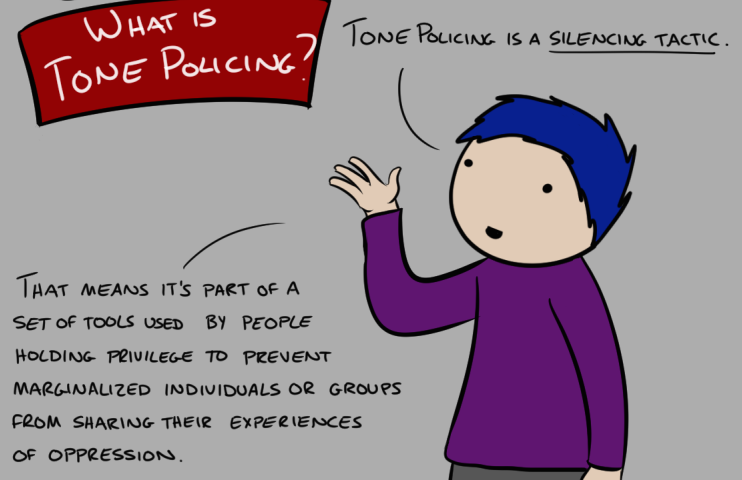People who don't experience this always have a lot to say. And it gets old. Because whites have problems that are self inflicted they think that everybody has them. White problems do not happen as the result of having to cope within a system that wants to deny your existence. But whites want to judge us as if we have the exact same experience and our actions are caused by the same exact things. We are called racists by whites for pointing out a proven behavior pattern, while whites see us talking about them based on color because that's how we have been judged by whites.

Although the chronic condition of stress can have negative side effects on all persons, the unique psycho-social and contextual factors, specifically the common and pervasive exposure to racism and discrimination, creates an additional daily stressor for African-Americans. Often, African-Americans do not realize daily stressors that may affect their psychological or physiological health and so we have compiled a collection of articles and additional resources to understand the health effects that result from exposure and perception of racism and discrimination.
The Ethnicity and Health in America Series is raising awareness about the physiological and psychological impact of racism and discrimination as it relates to stress during Black History Month.

www.apa.org
November 16, 2011
For black American adults, perceived racism may cause mental health symptoms similar to trauma and could lead to some physical health disparities between blacks and other populations in the United States, according to a new study published by the American Psychological Association.
While previous studies have found links between racism and mental health, this is the first meta-analysis on the subject focusing exclusively on black American adults, according to the study published online in APA’s
Journal of Counseling Psychology®.
“We focused on black American adults because this is a population that has reported, on average, more incidents of racism than other racial minority groups and because of the potential links between racism and not only mental health, but physical health as well,” said lead author Alex Pieterse, PhD, of the University at Albany, State University of New York.
Researchers examined 66 studies comprising 18,140 black adults in the United States. To be included in the analysis, a study must have been published in a peer-reviewed journal or dissertation between 1996 and 2011; include a specific analysis of mental health indicators associated with racism; and focus specifically on black American adults in the United States.
Black Americans’ psychological responses to racism are very similar to common responses to trauma, such as somatization, which is psychological distress expressed as physical pain; interpersonal sensitivity; and anxiety, according to the study. Individuals who said they experienced more and very stressful racism were more likely to report mental distress, the authors said.
While the researchers did not collect data on the impacts on physical health, they cite other studies to point out that perceived racism may also affect black Americans’ physical health.
“The relationship between perceived racism and self-reported depression and anxiety is quite robust, providing a reminder that experiences of racism may play an important role in the health disparities phenomenon,” Pieterse said. “For example, African-Americans have higher rates of hypertension, a serious condition that has been associated with stress and depression.”
The authors recommended that therapists assess racism experiences as part of standard procedure when treating black Americans, and that future studies focus on how discrimination is perceived in specific settings, such as work, online or in school.
Article: “Perceived Racism and Mental Health Among Black American Adults: A Meta-Analytic Review,” Alex L. Pieterse, PhD, University at Albany, State University of New York; Nathan R. Todd, PhD, DePaul University; Helen A. Neville, PhD, University of Illinois at Urbana-Champaign; and Robert T. Carter, PhD, Teachers College, Columbia University;
Journal of Counseling Psychology, Vol. 59, No. 1.
For black American adults, perceived racism may cause mental health symptoms similar to trauma and could lead to some physical health disparities between blacks and other populations in the United States, according to a new study published by the American Psychological Association.

www.apa.org
The Link Between Racism and PTSD
Posted Sep 06, 2015
Posttraumatic stress disorder (
PTSD) – the diagnosis conjures up images of hollow-eyed combat veterans or terrified rape victims, but new research indicates that racism can be just as devastating as gunfire or
sexual assault. In a previous article I posed the question,
Can Racism Cause PTSD? The answer is yes, and
changes in the DSM-5 open the door for a better understanding of this phenomenon. Here I discuss the psychological research in this area, as well as clinical observations and how these relate to my own experiences as a person of color. Several people have asked me why I focus on African Americans, given the many similar experiences faced by other ethnic/racial groups, immigrants, sexual minorities, disabled people, and other stigmatized individuals. I want to state up front that the problems faced by those groups are real and deserve
attention too, however in this article I am going to stick to what I know, the Black experience in America.
Racism-related experiences can range from frequent ambiguous “
microaggressions” to blatant hate crimes and physical assault. Racial
microaggressions are subtle, yet pervasive acts of racism; these can be brief remarks, vague insults, or even non-verbal exchanges, such as a scowl or refusal to sit next to a Black person on the subway. When experiencing microaggressions, the target loses vital mental resources trying figure out the intention of one committing the act. These events may happen frequently, making it difficult to mentally manage the sheer volume of racial stressors. The unpredictable and
anxiety-provoking nature of the events, which may be dismissed by others, can lead to victims feeling as if they are “going crazy.” Chronic fear of these experiences may lead to constant vigilance or even
paranoia, which over time may result in traumatization or contribute to PTSD when a more
stressful event occurs later (Carter, 2007). In fact, one study of female veterans found that African Americans scored higher on measures of ideas of persecution and paranoia, which the authors attributed to an adaptive response to racism (C’de Baca, Castillo, & Qualls, 2012).
While most of us can understand why a violent hate
crime could be traumatizing, the traumatizing role of microaggressions can be difficult to comprehend, especially among those who do not experience them. One study of racial
discrimination and psychopathology across three U.S. ethnic minority groups found that
African Americans experienced significantly more instances of discrimination than either Asian or Hispanic Americans (Chao, Asnaani, Hofmann, 2012). Non-Hispanic Whites experience the least discrimination (11% for Whites versus 81% for Blacks; Cokley, Hall-Clark, & Hicks, 2011). Furthermore, those African Americans who experienced the most racism were significantly more likely to experience
symptoms of PTSD as well.
Make no mistake, Asian and Hispanic Americans receive their unfair share of racism too, and research shows that it may even be harder to manage for individuals in these groups. But each ethnic/racial group has its own package of
negative stereotypes that impact the form of racism experienced, so it’s not surprising that PTSD prevalence differs by
race and ethnicity.
Findings from large-scale national studies indicate that, while African Americans have a lower risk for many anxiety disorders, they have a 9.1% prevalence rate for PTSD, compared to 6.8% in Whites (Himle et al, 2009). That means that
almost one in ten Black people becomes traumatized, and I think these rates may actually be higher since diagnosticians are usually not considering the role of racism in causing trauma (Malcoun, Williams, & Bahojb-Nouri, 2015).
The experience of trauma extends beyond the news to the everyday challenges Black people face with omnipresent racism, leading to race-based stress and trauma.

www.psychologytoday.com
Examining the Link Between Racism and Health
New research suggests that discrimination takes a physical toll.
Posted Oct 19, 2017
A lead researcher in the field is Anthony Ong, a professor of human development in Cornell University’s College of Human Ecology. Ong explains that experiencing discrimination or mistreatment regularly can affect health through eroding a person’s
self-esteem and by robbing marginalized individuals of opportunities.
“Although increasing evidence suggests that chronic exposure to unfair treatment or day-to-day discrimination increases the risk for poor health, the overall dearth of data on biological mechanisms indicate it’s important to continue studying this topic,” Ong said.
He published
a study last year of more than 200 African-American adults followed over the period of a decade. Participants filled out questionnaires about everyday mistreatment such as being called names, insulted, threatened, or harassed. They also answered questions about larger occurrences of unfair treatment, such as being discouraged from continuing their
education, not receiving a loan or being hassled by the police.
Participants also underwent blood tests to identify 22 biomarkers of diseases including heart disease, diabetes, nerve problems and inflammation.
Ultimately, participants who reported experiencing more discrimination were in poorer health. Ong said that’s because experiencing discrimination on a regular basis, even small instances of daily mistreatment, lead to “wear-and-tear” on the body over time.
“Our findings suggest that coping with chronic experiences of day-to-day mistreatment and discrimination can elicit a cascade of response that over time ‘weather’ or damage the physiological systems that regulate the body’s stress response,” he said.
There is a growing body of evidence that racial discrimination triggers a chronic stress response, leading to a variety of health problems.

www.psychologytoday.com
JUNE 23, 2017
The Little Understood Mental-Health Effects of Racial Trauma
On
Sunday, police officers in Seattle shot and killed Charleena Lyles in her home. She died in front of “several children,” according to reports, and her family members say she was pregnant. Just days before, Jeronimo Yanez, the Minnesota police officer who shot and killed Philando Castile during a traffic stop, was acquitted of all charges. Earlier this spring, an unarmed teenager named Jordan Edwards was shot and killed by police as he was driving away from a party. By now, it’s become a sickeningly familiar sequence of events.
While the trigger (both literally and metaphorically) is the same, there is an aspect of these events that is frequently overlooked: the effects of the frequent police killings on black Americans’ mental health in the form of racial trauma, a psychological phenomenon that some experts say is similar to post-traumatic stress disorder. “Racial trauma is experiencing psychological symptoms such as anxiety, hypervigilance to threat, or lack of hopefulness for your future as a result of repeated exposure to racism or discrimination,” said Erlanger Turner, an assistant professor of psychology at the University of Houston-Downtown, who is one of only a handful of researchers studying racial trauma.
Symptoms can include depression and angry outbursts, much like what is typically seen in those suffering from PTSD. But Turner has observed additional behaviors that are specific to racial trauma, including a reluctance to interact with or general mistrust of white people. Racial trauma can be triggered by many events, but among the most common
triggers are continued racial harassment, being a victim of police violence, or witnessing said violence. Even witnessing violence on the news can be damaging. “Research has consistently shown that visual exposure to events can be traumatic,” Turner said. “I particularly believe that the recent news coverage of police shootings of black and brown men will cause some short-time trauma for individuals, especially children. I strongly encourage parents to limit exposure to this type of news coverage.” And yet few researchers are studying the lasting impact of racial trauma.
Some researchers are comparing the symptoms to PTSD.

www.thecut.com
Everybody has an opinion on race and racism, but not everybody has a studied or learned opinion. And that is the problem here in these discussions. When looked upon critically, racism is a form of abusive behavior based upon a belief in racial superiority.
Racism includes and has included these things:
- Emotional/Psychological abuse
- Financial abuse
- Physical abuse
- Sexual abuse
- Verbal abuse
- Spiritual abuse
Tremendous psychological damage has been inflicted on nonwhites because of the racist policies and individual actions by whites in America and worldwide. But some whites seem to think that racism is simple and that it carries no psychological consequences to those who are the victims of it. They do so because they see nonwhites coping the best way they can with it. Secondly, they tend to look at things based on their perspective, meaning that when they see blacks acting violent they look at it from their experience as whites, never factoring in the damage at every level caused by past and continuing white racism.
“On occasion, the emotional weight of racism can lead African Americans to engage in maladaptive coping, such as remaining in denial, engaging in substance use, aggression, self-blame – even in extreme cases suicide (i.e., Black Lives Matter activist Marshawn McCarrel) and terrorism (i.e., Dallas shooter Micah Xavier Johnson). These responses are harmful and lead to negative, long-term consequences.”
Monnica T. Williams Ph.D.
It is important to understand these realities. If not, then eventually you are going to end up with a chain of black and other nonwhite mass killers because people ignore the psychological damage created by racism. I remember being asked to speak to a class of students in the university located in my hometown on racial stereotypes in the media. It was shortly after the mass shooting at Virginia Tech. I began my talk with trying to provide an example of how white racism could have been a factor in the shooting. After all, the shooter was an Asian student that lived as the only Asian student in his dorm. There is no telling how many times he was taunted by white Virginia children of confederacy supporters. Cho Seung-Hui was deemed mentally ill, and I was almost fired from my job because the comment I made offended the president of the board of directors of the organization I was working for at the time who was also speaking to the same class. She was a white liberal and of course racism could not have anything to do with that killing in her mind. Mind you, this person was in no manner a racist, in fact she was most certainly a warrior for human equality. The reality of this example is that no matter how much a white person is nonracist, they do not personally experience racism and therefore should probably listen to those of us who do. There is no telling how much racism Cho endured during his life and eventually that racism contributed to the mental decline and rage that led to those killings.
I post this because I get the silly argument about black self inflicted problems. Our problems begin with white racism. Whites want to ignore that such a problem exists or if it does, it is just something you can ignore and move beyond just by not talking about it. No abusive behavior is EVER solved in that manner.
:max_bytes(150000):strip_icc()/leaving-florida-2667542-5991eefcd088c00013b44195.jpg)








 Have they betrayed their culture?
Have they betrayed their culture?








